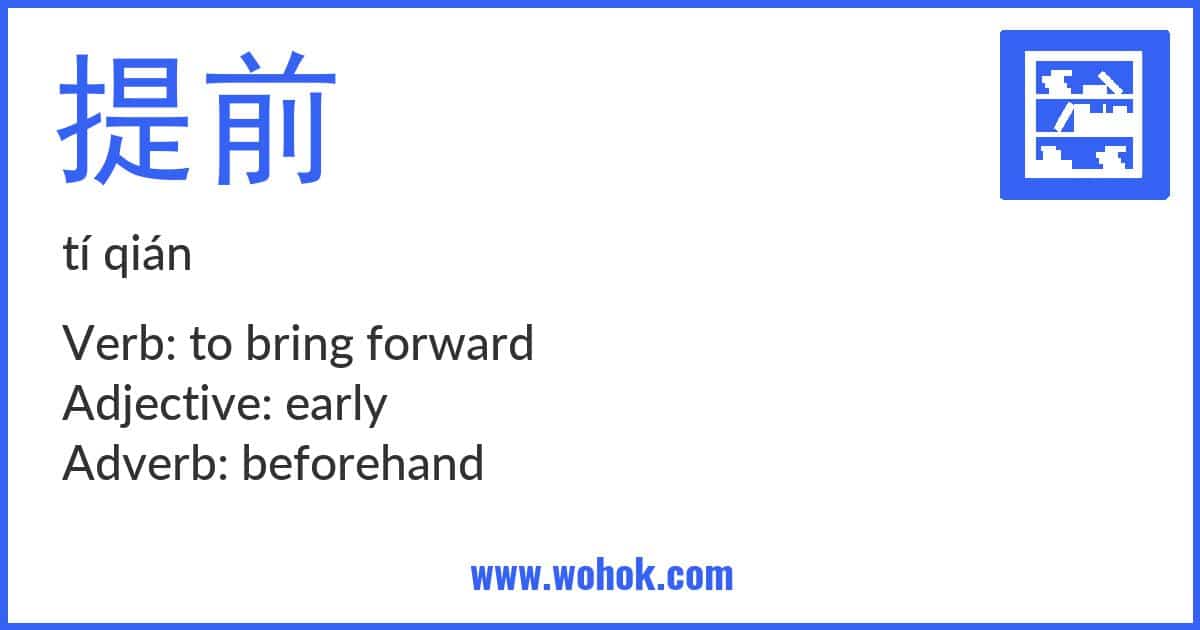The Chinese word 提前 means “to bring forward”. It is often used to refer to an action taken before the scheduled time. For example, if someone wants to advance a meeting time, they can say “我们能不能把会议时间提前一小时?”, which means “Can we bring the meeting time forward by one hour?”
Translation
Verb: to bring forward
Adjective: early
Adverb: beforehand
Pronunciation
Example Sentences
| Chinese | Pinyin | Engish |
|---|---|---|
| 我们需要提前准备好材料 | wǒmen xūyào tíqián zhǔnbèi hǎo cáiliào | We need to prepare the materials in advance |
| 请你提前告诉我你的计划 | qǐng nǐ tíqián gàosù wǒ nǐ de jìhuà | Please let me know your plan in advance |
| 他提前一个小时到达了机场 | tā tíqián yīgè xiǎoshí dàodále jīchǎng | He arrived at the airport one hour in advance |
| 我们可以提前预订酒店 | wǒmen kěyǐ tíqián yùdìng jiǔdiàn | We can book the hotel in advance |
| 你可以提前准备好礼物 | nǐ kěyǐ tíqián zhǔnbèi hǎo lǐwù | You can prepare the gift in advance |
| 这个项目的完成时间要提前 | zhège xiàngmù de wánchéng shíjiān yào tíqián | The completion time of this project needs to be advanced |
| 我们必须提前安排好行程 | wǒmen bìxū tíqián ānpái hǎo xíngchéng | We must arrange the itinerary in advance |
| 他们提前一周通知了客户 | tāmen tíqián yī zhōu tōngzhīle kèhù | They notified the customer one week in advance |
HSK
提前 is part of HSK Level 4 in HSK 2.0. In the newer HSK 3.0 it is part of HSK Level 3.
Learning Card


